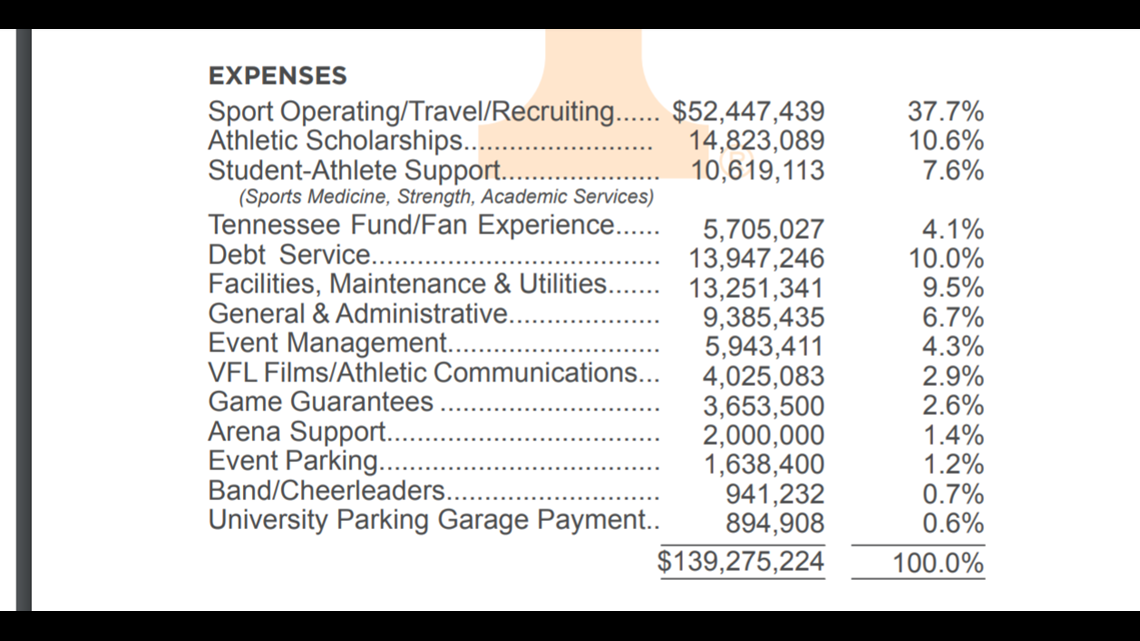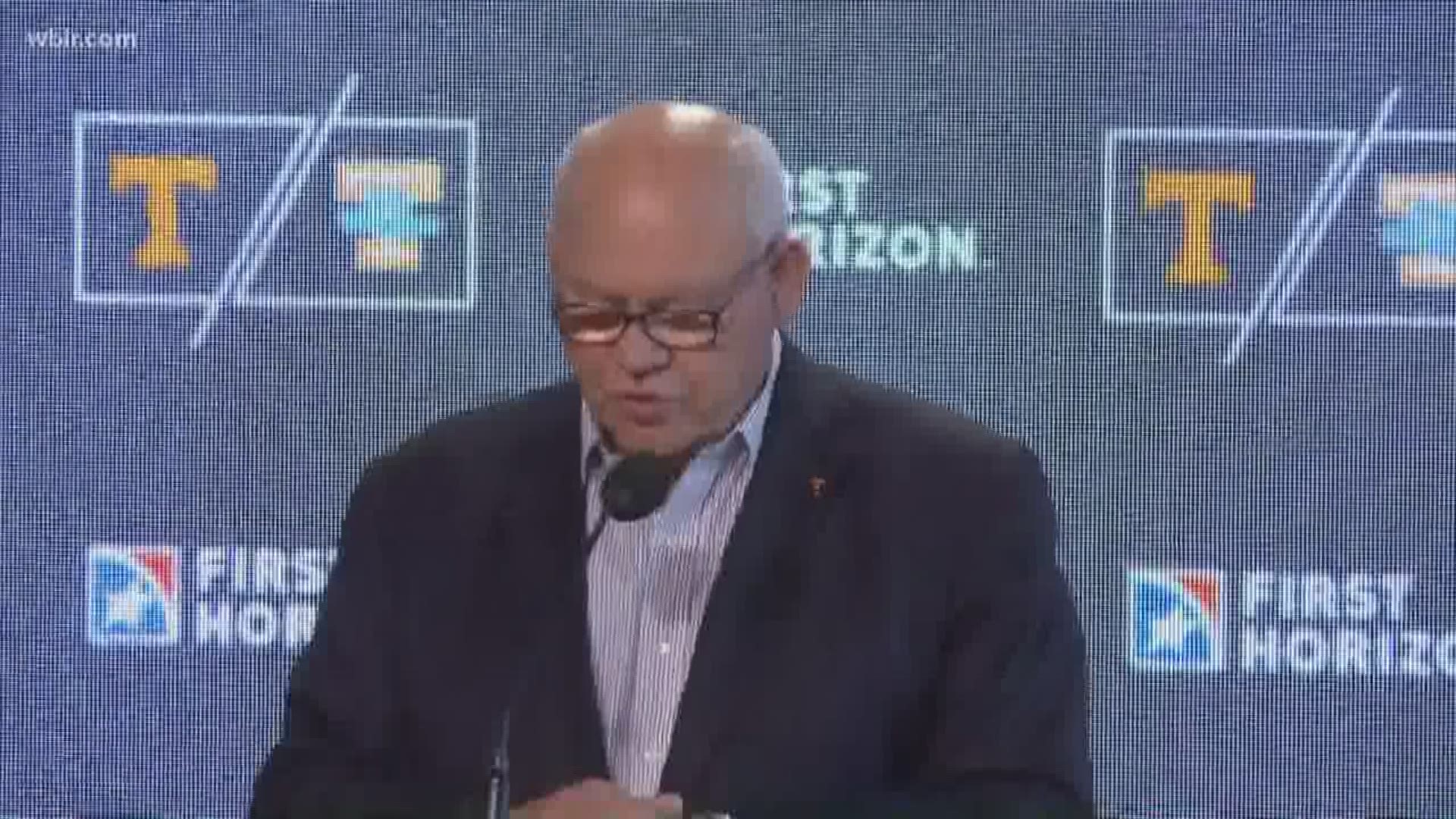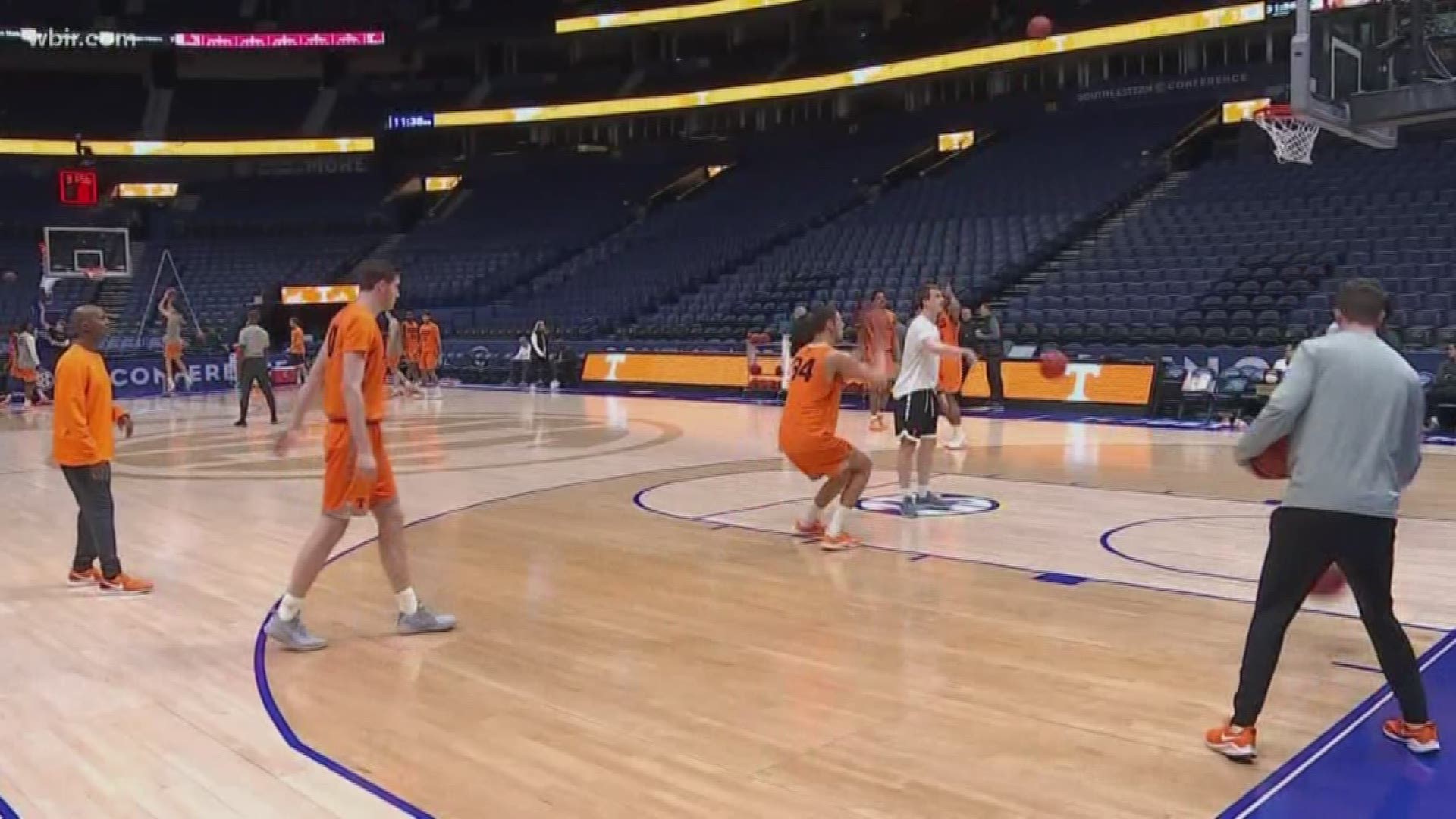KNOXVILLE, Tenn. — University of Tennessee Athletics administrators are tracking daily how the ongoing COVID-19 crisis will affect its current $139 million budget, according to Associate Athletics Director for Communications Tom Satkowiak.
Meanwhile, the department is planning for its fall sports seasons -- with football being the biggest component -- to "proceed as scheduled," Satkowiak said.
"While we’re being optimistic in that approach, we’re also operating with empathy and understanding that many of our fans are facing challenging circumstances," he said. "With that in mind, we’re being creative in offering flexibility to our fans at this time, including offering a payment plan for football season tickets for the first time."
In March, college athletics, like much of the rest of American society, came to a sudden halt.


The men's basketball team was getting ready to play in the SEC Tournament in Nashville when they were summoned home because of growing concerns about the spread of the virus. The softball team was on its way to its first SEC series when it learned all play was being suspended.
UT's baseball team was also entering its first weekend of SEC play with a strong 15-2 record.
All spring athletics activities have been scrubbed. Students are finishing up spring semester classes remotely, and UT will also hold summer classes through online instruction.
The department's budget counts on $30 million from football ticket sales to help fund operations. It also looks for about $6.2 million from men's and women's basketball ticket sales. Those are the biggest ticket revenue sources.
UT also budgeted for $45.5 million from SEC and NCAA distributions in the current spending plan.
Nationwide, the NCAA's move to call off the Division I basketball tournament wiped out $375 million that was supposed to be distributed to member schools, according to the Associated Press.


Satkowiak said UT is out some money this spring from basketball but will save money elsewhere.
"We expect that our projected revenue will be reduced because the canceled NCAA Men’s Basketball Tournament will lead to a reduced NCAA distribution," he said.
But without sports, there won't be the related expenses such as travel, meals and hotels, he said.
"It’s too early to speculate on the specific amounts, but the overall financial impact is something we’re assessing daily," Satkowiak said.
Right now, athletics spending must be pre-approved, he said.
Some universities such as Iowa State University have gone so far as to cut athletics staff pay by 10 percent, and coaches gave up expected bonuses, according to the Associated Press.
Satkowiak said UT hasn't done that, but "we will explore various measures to manage these circumstances in the most fiscally responsible way."
Among spring events that have been canceled are the annual Chevrolet Orange & White Game, which was supposed to be held this Saturday at Neyland Stadium, and the NCAA Rowing Championships, which UT was to host and which was to take place May 29-31 in Oak Ridge.
The NCAA Division 1 Council is allowing schools including UT to give spring-sport athletes an extra year of eligibility.
The council has also adjusted financial aid rules, allowing spring teams to have more players on scholarship. If needed, schools can use the NCAA's Student Assistance Fund to pay for the scholarships.
As Athletics Director Phillip Fulmer said in a statement April 1, "We are all in uncharted territory, and there is no manual to guide our decision making. However, we must continue to act with abundant caution while prioritizing health and safety throughout our campuses and communities."


